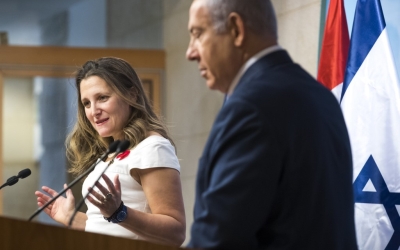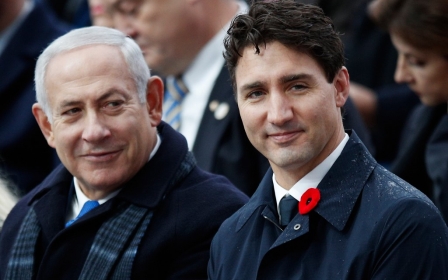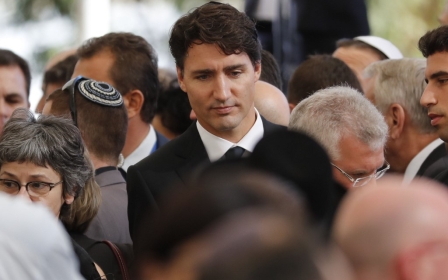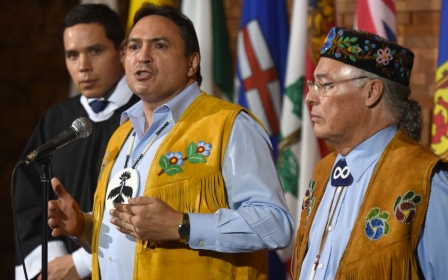Canada doesn't deserve a UN Security Council seat
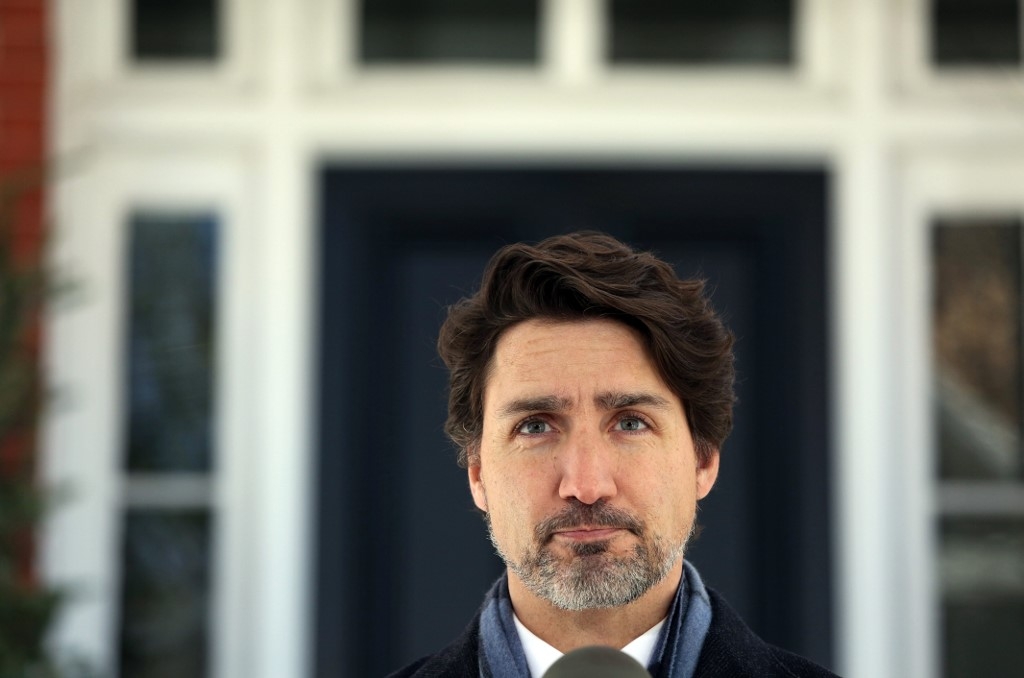
For years, I have observed the human rights record of Canada. Not too long ago, Canada was considered a champion for human rights and international law, but it has since departed from those golden years. Nowhere is this retreat from liberalism clearer than in the case of Palestine.
Canada has often been cited, in contrast to its southern neighbour, as a stalwart defender of the rights of the oppressed, and a faithful supporter of international humanitarian and refugee organisations.
Yet, Canadian policies calling for sanctions against countries known to be human rights violators, and welcoming political asylum-seekers, eroded under the previous Conservative government - and despite expectations to the contrary, they were not improved under the current Liberal government of Prime Minister Justin Trudeau.
Following the US lead
For two decades, Canada, which is now seeking membership in the UN Security Council, has slavishly followed the lead of the United States. The current Canadian government has promised it would be “an asset for Israel” if granted a seat.
New MEE newsletter: Jerusalem Dispatch
Sign up to get the latest insights and analysis on Israel-Palestine, alongside Turkey Unpacked and other MEE newsletters
The issue is not whether Canada is pro-Israel or pro-Palestine, but whether it continues to believe in international law
By contrast, the two other countries competing with Canada for the UN Security Council seat under the current rotation system - Ireland and Norway - have generally supported Palestinian rights, voting yes 251 and 249 times respectively on resolutions related to Palestinian rights since the year 2000. Canada has voted yes 87 times, but since 2010, it has supported only two resolutions for Palestinian rights.
It is no wonder, then, that more than 100 organisations from Canada and outside the country have written a letter to UN ambassadors opposing Canada’s bid for a Security Council seat, and pointing out its dismal record. This effort seems to have had some effect prompting the Canadian ambassador to the UN, Marc-Andre Blanchard, to write a response attempting unsuccessfully to defend Canada's record.
Violating international law
The fact that this is unfolding precisely as Israel has vowed to forge ahead with the annexation of additional portions of the West Bank, in blatant violation of international law, raises additional concerns.
Such attempts have in the past been met with near-universal condemnation, until the Trump administration appeared to give the green light to Israel for its planned violations. This has invited chaos in the international arena, as other countries may similarly claim historic rights, security interests or other reasons for annexing lands from neighbouring states.
The issue is not whether Canada is pro-Israel or pro-Palestine, but whether it continues to believe in international law and the important role of global organisations - or whether it is committed to the philosophy of the Trump administration, which is openly contemptuous of international law.
As the US abdicates its leadership role in the international arena and actively undermines international principles and organisations, it is important that Canada be denied the coveted Security Council seat, where it could further erode international law, working as “an asset” for Israel and unreservedly following the policies of the Trump administration.
As the world battles the Covid-19 pandemic and prepares to address other issues, from climate change to evolving human rights challenges, it is hoped that Canada may once again become a champion of international law and international organisations.
Until then, every effort should be exerted to keep Ottawa away from having a say inside the Security Council.
The views expressed in this article belong to the author and do not necessarily reflect the editorial policy of Middle East Eye.
Middle East Eye delivers independent and unrivalled coverage and analysis of the Middle East, North Africa and beyond. To learn more about republishing this content and the associated fees, please fill out this form. More about MEE can be found here.



